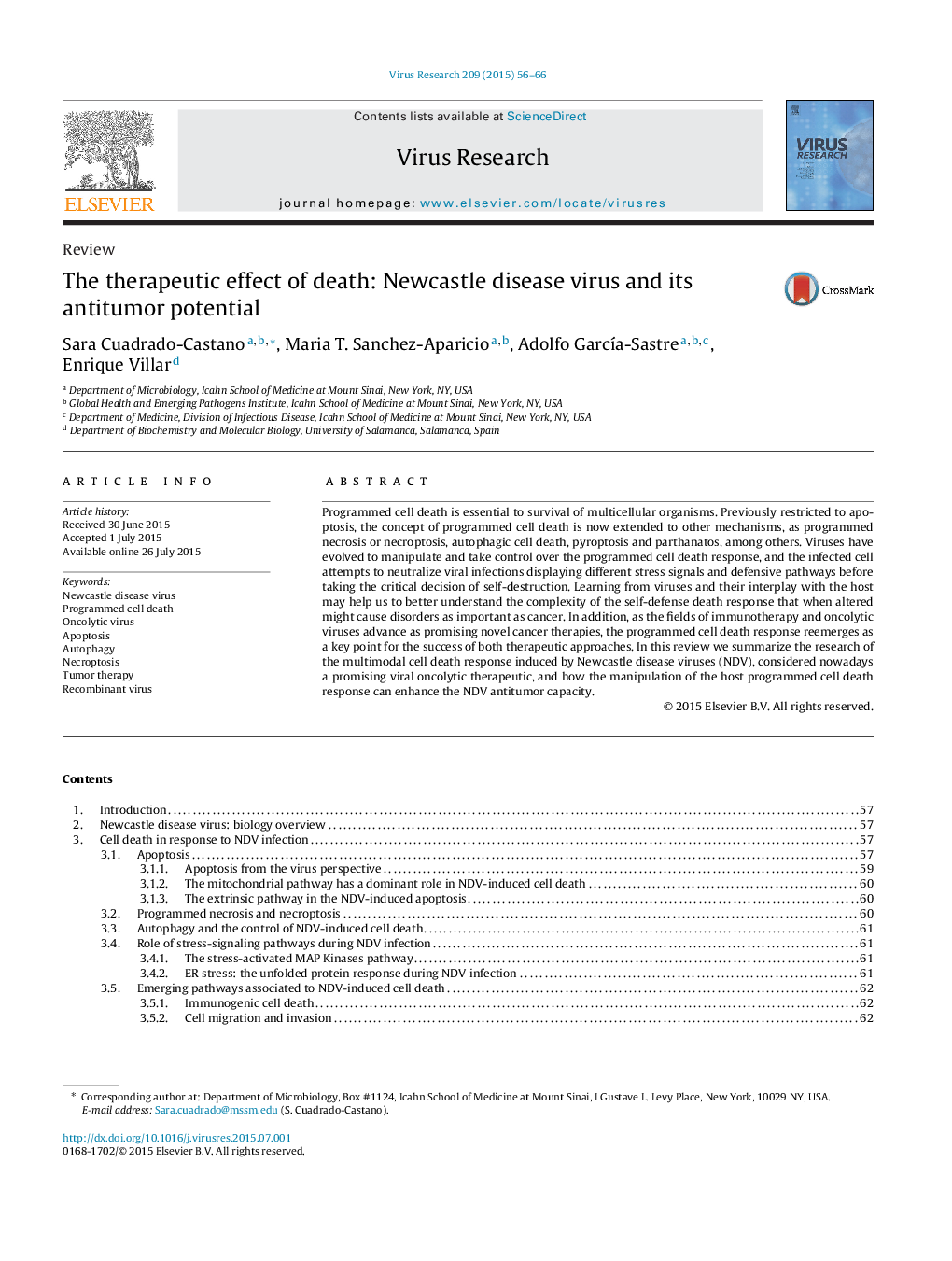| Article ID | Journal | Published Year | Pages | File Type |
|---|---|---|---|---|
| 6142215 | Virus Research | 2015 | 11 Pages |
â¢Programmed cell death is essential in the host defense against pathogens.â¢Newcastle disease virus is a paramyxovirus with an extraordinary oncolytic potential.â¢The multimodal cell death response induced by NDV influences its antitumor potential.â¢Guiding cell death responses to NDV opens new antitumor therapeutic strategies.
Programmed cell death is essential to survival of multicellular organisms. Previously restricted to apoptosis, the concept of programmed cell death is now extended to other mechanisms, as programmed necrosis or necroptosis, autophagic cell death, pyroptosis and parthanatos, among others. Viruses have evolved to manipulate and take control over the programmed cell death response, and the infected cell attempts to neutralize viral infections displaying different stress signals and defensive pathways before taking the critical decision of self-destruction. Learning from viruses and their interplay with the host may help us to better understand the complexity of the self-defense death response that when altered might cause disorders as important as cancer. In addition, as the fields of immunotherapy and oncolytic viruses advance as promising novel cancer therapies, the programmed cell death response reemerges as a key point for the success of both therapeutic approaches. In this review we summarize the research of the multimodal cell death response induced by Newcastle disease viruses (NDV), considered nowadays a promising viral oncolytic therapeutic, and how the manipulation of the host programmed cell death response can enhance the NDV antitumor capacity.
